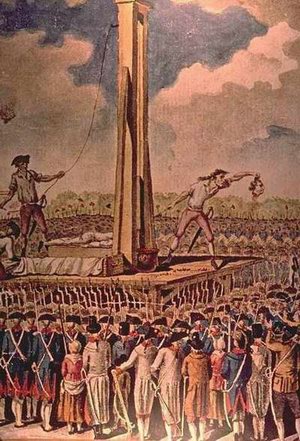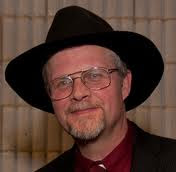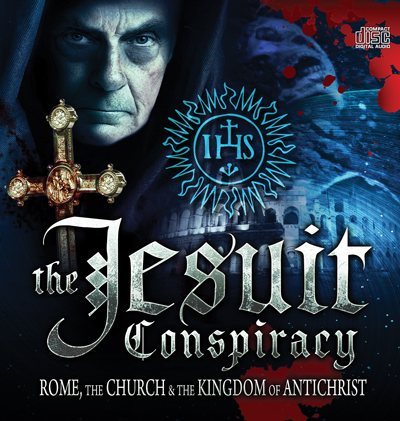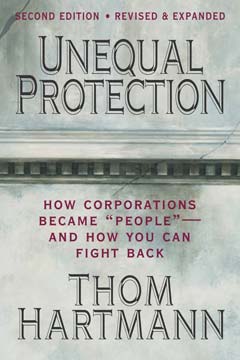 The Protestant Position on the Apocrypha Defended in Francis Turretin and William Whitaker
The Protestant Position on the Apocrypha Defended in Francis Turretin and William Whitaker
Turretin, Institutes, Vol. 1, 2nd Topic, Q.9
“NINTH QUESTION: THE APOCRYPHAL BOOKS: Ought Tobit, Judith, Wisdom, Ecclesiasticus, the first two books of the Maccabees, Baruch, the additions to Esther and Daniel to be numbered among the canonical books? We deny against the papists.
I. The Apocryphal books are so called not because the authors are unknown (for there are some canonical books Apocryphal. whose authors are unknown and some whose authors are known); not because they could be read only in private and not in public (for some of them may be read even in public), but either because they were removed from the crypt (apo tes kryptes) (that sacred place in which the holy writings were laid up) as Epiphanius and Augustine think; or because their authority was hidden and suspected, and consequently their use also was secret since the church did not apply to them to confirm the authority of ecclesiastical doctrines (as Jerome says, `Praefatio in libros Salomonis’ from “Hieronymi Prologus Galeatus” in Biblia Sacra VuLgata Editionis Sixti V…et Celementis VIII [1865], p. lii); or, what is more probable, because they are of an uncertain and obscure origin (as Augustine says, CG 15.23* [FC 14:474]).
II. The question is not about the books of the Old and the New Testament which we hold as canonical, for the papists agree with us as to these; nor about all the apocryphal books, for there are some rejected by the papists as well as by us (as the 3rd and 4th of Esdras, 3rd and 4th of Maccabees, the Prayer of Manasseh, etc.). The question is only about Tobit, Judith, Baruch, Wisdom, Ecclesiasticus, 1 and 2 Maccabees, the additions to Esther and Daniel, which the papists consider canonical and we exclude from the canon-not because they do not contain many true and good things, but because they do not bear the marks of canonical books.
III. The reasons are various. ( 1 ) The Jewish church, to which the oracles of God were committed (Rom. 3:2), never considered them as canonical, but held the same canon with us (as is admitted by Josephus, Against Apion 1.39-41 [Loeb, 1:178-79], Becanus, Manuale controversiarum 1.1 [1750], pp. 11-12) and Stapelton, “De Principiis
fidei doctrinalibus controversia,” Cont. 5.7* in Opera [1620], 1:322-23). This they could not have done without the most grievous sin (and it was never charged upon them either by Christ or his apostles) if these books no less than the others had been committed to them. Nor should the canon of the Jews be distinguished here from that of Christians because Christians neither can nor ought to receive other books of the Old Testament as canonical than those which they received from the Jews, their book-servants “who carry the books of us students” (as Augustine calls them, “On Psalm 40 [41]” [NPNFI, 8:132; PL 36.463]). (2) They are never quoted as canonical by Christ and the apostles like the others. And Christ, by dividing all the books of the Old Testament into three classes (the law, the Psalms and the prophets, Lk. 24:44), clearly approves of the canon of the Jews and excludes from it those books which are not embraced in these classes. (3) The Christian church for four hundred years recognized with us the same and no other canonical books. This appears from the Canons of the Synod of Laodicea 59 (NPNF2, 14:158); Melito, bishop of Sardis, who lived 116 years A.D. (according to Eusebius, Ecclesiastical History 4.26* [FC 19:262-63]); from Epiphanius (“De Epicureis,” Panarion [PG 41.206-23]); Jerome (“Hieronymi Prologus Galeatus,” in Biblia Sacra Vulgatae Editionis Sixti V . . . et Clementis VIII [1865], pp. xliii-lv); Athanasius (Synopsis Scripturae Sacrae [PG 28.283-94]). (4) The authors were neither prophets and inspired men, since they wrote after Malachi (the last of the prophets); nor were their books written in the Hebrew language (as those of the Old Testament), but in Greek. Hence Josephus (in the passage referred to above) acknowledges that those things which were written by his people after the time of Artaxerxes were not equally credible and authoritative with those which preceded “on account of there not being an indisputable succession of prophets” (dia to me genesthai ten ton propheton akribe diadochen, Against Apion 1.41 (Loeb, 1:178-79]).
IV. The style and matter of the books proclaim them to be human, not divine. It requires little acuteness to discover that they are the product of human labor, although some are more excellent than others. For besides the fact that the style does not savor of the majesty and simplicity of the divine style and is redolent with the faults and weaknesses of human genius (in the vanity, flattery, curiosity, mistaken zeal and ill-timed affectation of learning and eloquence, which are often met with), there are so many things in them not only foolish and absurd, but even false, superstitious and contradictory, as to show clearly that they are not divine but human writings. We will give a few specimens of the many errors. Tobias makes the angel tell a falsehood. He says that he is Azariah, the son of Ananias (Tob. 5:12*) and that he is Raphael, the angel of the Lord (12:15). The angel gives a magical direction for driving away the devil by the smoke of a fish’s liver (Tob. 6:6), against that of Christ (Mt. 17:21). He arrogates to himself the oblation of prayers (Tob. 12:12), which belongs to the work of Christ alone. The book of Judith celebrates the deed of Simeon (Jud. 9:2), which Jacob cursed (Gen. 49:5-7); praises the deceits and lies of Judith (Jud. 11), which are not very consistent with piety. Worse still, she even seeks the blessing of God upon them (Jud. 9:13). No mention is made of the city Bethulia in the Scriptures; nor does any trace of the deliverance mentioned there occur in Josephus or Philo, who wrote on Jewish subjects. The author of Wisdom falsely asserts that he was king in Israel (Wis. Sol. 9:7, 8) that he might be taken for Solomon. Yet he alludes to the athletic contests which in the time of Solomon had not been established among the Greeks (Wis. Sol. 4:2). Further, he introduces the Pythagorean metempsychosis (metempsychosin, Wis. Sol. 8:19, 20) and gives a false account of the origin of idolatry (14:15, 16). The Son of Sirach (Sir 46:20) attributes to Samuel what was done by the evil spirit raised by wicked devices (1 S. 28:11), falsely speaks of Elijah’s bodily return (Sir. 48:10), and excuses his oversights in the prologue.
V. There are so many contradictions and absurdities in the additions to Esther and Daniel that Sixtus Senensis unhesitatingly rejects them. Baruch says that in the fifth year after the destruction of Jerusalem, he read his book to Jeconiah and to all the people of Babylon; but Jeconiah was in prison and Baruch had been taken away to Egypt after the death of Gedaliah (Jer. 43:7*). He mentions an altar of the Lord (Bar. 1:10) when there was none, the temple being destroyed. The books of the Maccabees often contradict each other (compare 1 Mac. 1:16 with 9:5, 28 and chapter 10). The suicide (autocheiria) of Razis is praised (2 Mac. 14:42). Will-worship (ethelothreskeia) is commended (2 Mac. 12:42) in Judas’s offering a sacrifice for the dead contrary to the law. The author apologizes for his youth and infirmity and complains of the painful labor of abridging the five books of Jason, the Cyrenian (2 Mac. 2:23*, 24; 15:39). If you wish any more specimens from these books, consult Rainold, Chamier, Molinaeus, Spanheim and others who have pursued this line of argument with fullness and strength.
VI. The canon of faith differs from the canon of ecclesiastical reading. We do not speak here of the canon in the latter sense, for it is true that these apocryphal books were sometimes read even publicly in the church. But they were read “for the edification of the people” only, not “for establishing the authority of the doctrines” as Jerome says, Praefatio . . . in Libros Salomonis (NPNF2, 6:492; PL 28.1308). Likewise the legends containing the sufferings of the martyrs (which were so called from being read) were publicly read in the church, although they were not considered canonical. But we speak here of the canon of faith.
VII. The word “canon” is used by the fathers in two senses; either widely or strictly. In the first sense, it embraces not only the canon of faith, but also the canon of ecclesiastical reading. In this way, we must understand the Third Council of Carthage, Canon 47 (Lauchert, p. 173) when it calls these canonical books (if indeed this canon has not been foisted in [pareisaktos] because it mentions Pope Boniface who was not at that time pope; hence Surius, the Ivlonk [Concilia omnia (1567), 1:508*] attributes this canon to the Seventh Council of Carthage, not the Third) not strictly and properly of the canon of faith, but widely, of the canon of reading. The synod expressly says that the sufferings of the martyrs should also be read and so we must understand Augustine when he terms them “canonical:’ For he makes two orders of canonicals: the first of those which are received by all the churches and were never called in question; the second of those which are admitted only by some and were usually read from the pulpit. He holds that the latter are not to be valued as rightly as the former and have far less authority (Augustine, Reply to Faustus the Manichaean 11.5* [NPNFI, 4:180]). But the Apocrypha are spurious, false and worthless writings-the fables of the Scriptures (Augustine, CG 15.23 [FC 14:474]). However the word “canon” is taken strictly for that which has a divine and infallible authority in proving the doctrines of faith. Jerome takes the word in this sense when he excludes those books from the canon. Thus Augustine attached a wider signification to the word “canon” than Jerome, who again takes the word “apocryphal” in a wider sense than Augustine, not only for books evidently false and fabulous, but also for those which (although they might be read in the church) should not be used to prove the doctrines of faith. Thus the seemingly contradictory expressions of these fathers may easily be reconciled. Thus Cajetan near the end explains them: “The words of councils as well as of teachers being brought to the test of Jerome, it will appear that these books are not canonical (i.e., regulars to establish matters of faith), although they may be called canonical (i.e., regulars for the edification of believers), since they were received into the Biblical canon for this purpose” (“In librum Hester commentarii, in quotquot in Sacra Scripturae (1639], 2:400). Dionysius Carthusianus agrees with him (Prooemium in “Tobiam,” in Opera Omnia [1898], 5:83-84).
VIII. The papists make a useless distinction between the canon of the Jews and that of Christians. For although our canon taken generally for all the books of the Old and New Testament (in which it adequately consists) is not equally admitted by the Jews, who reject the New Testament; yet if it is taken partially with reference to the Old Testament (in which sense we speak of it here), it is true that our canon does not differ from that of the Jews because they receive into the canon no other books than we do.
IX. When the fathers sometimes mention Deuterocanonical books, they do not mean such as are truly and in the same sense canonical as to faith, but only those which may be placed in the canon of reading on account of their usefulness for piety and edification.
X. The citation of any passage does not of itself prove a book to be canonical, for then Aratus, Menander and Epimenides (quoted by Paul in Acts 17:28; 1 Cor. 15:33; Tit. 1:12) would be canonical. (2) The same passages which our adversaries bring forward as quotations from the Apocrypha are found in the canonical books, and the apostles would rather quote from these than from the former.
XI. If they are connected with canonical books, it does not follow that they are of equal authority, but only that they are useful in the formation of manners and a knowledge of history, not for establishing faith.
XII. Although some of the Apocryphal books are better and more correct than the others and contain various useful moral directions (as the book of Wisdom and the Son of Sirach), yet because they contain many other false and absurd things, they are deservedly excluded from the canon of faith.
XIII. Although some have questioned the authenticity of a few books of the New Testament (i.e., the epistle of James, 2 Peter, 2 and 3 John and Revelation, which afterwards were received by the church as canonical), it does not follow that the same can be done with the Apocryphal books because the relation of the books of the Old and New Testaments to this subject are not the same. For the books of the Old Testament were given to the Christian church, not at intervals of time and by parts, but she received at one and the same time from the Jews all the books belonging to her written in one codex after they had been stamped with an indubitable authority, confirmed by Christ and his apostles. But the books of the New Testament were published separately, in different times and places and gradually collected into one corpus. Hence it happened that some of the later books (which came to some of the churches more slowly, especially in remote places) were held in doubt by some until gradually their authenticity was made known to them. (2) Although in certain churches some of the epistles and Revelation were rejected, yet those who received them were always far more numerous than those who rejected them. Yet there was no dispute about the Apocryphal books because they were always rejected by the Jewish church.”
[Sola Scriptura Ministries Site, http://www.thescripturealone.com/Terrtn-1.html]
Whitaker states,
“Epiphanius (Haer. Viii.. contra Epicuraeos [Opp. .i.p.19. ed. Petavii]) counts twenty-seven books of the old Testament, which he says were delivered by God to the Jews; or rather, as he subjoins, twenty-two: For so he determines that the genuine books of the old Testament are equal in number to the letters of the Hebrew alphabet. But some books (as Epiphanius says) are doubled. Hence arises that variety in the sum; being counted when doubled, twenty two, and, taking each book severally twenty seven. Then he adds, “There are also two other books which are doubtful, – the Wisdom of Sirach and that of Solomon besides some others which are apocryphal.” He calls some dubious some merely apocryphal The same author writes in his book of Weights and Measures that the Jews sent to king Ptolemy twenty two books transcribed in golden letters which he enumerates in a previous passage although Josephus in the beginning of his Antiquities relates that only the five books of Moses were sent. In this place he writes thus of those two books the Wisdom of Solomon and of Sirach which lie had in the former citation called dubious: “ They are indeed useful books but are not included in the canon and were not deposited in the ark of the covenant. Which is as much as to say plainly that they are not to be counted canonical.” (Disputation, pg. 58-59)
Epiphansius says in Weights and Measures, The Treatise Of St. Epiphanius, Bishop Of The City Of Constantia In Cyprus, On Measures And Weights And Numbers And Other Things That Are In The Divine Scriptures,
“10. 91The letter of the king to the teachers of the Jews:91 “King Ptolemy to the teachers of the Jews in Jerusalem: Much joy. After I had established a library and collected many books from every people and placed them in it, I heard that there are also found among you the books of the prophets which tell about God and the creation of the world. And, desiring that I might give them also a place of honor 92 with the other books, I have written that you may send them to us. For I am honorably desirous of such a thing and devoid of guile or evil intention, but in good faith and kindness toward you I make request for them, since 93 from of old 93 there has been good will from us toward you, as you know when you remember. For perhaps you recall how, when many captives had been taken from your place and brought to our place in Egypt, I let them go. With abundance of provisions and exercising unusual consideration toward them, I sent them away free. 94 Moreover, those who were sick among them, {53a} after I had healed them, I likewise dismissed, and the naked I clothed. And now a table of gold, embellished with precious stones of great value, a hundred talents in weight, instead of the table that was taken from the holy place (of) Jerusalem, I have sent along, with gifts and valuable things for the priestly place. I have thus given a recital of these things that you may know that I have requested the books because of a vow of piety.” 95 And the letter was dispatched and the presents sent likewise.96 And when they had received and read 96 the letter and 97 saw the things that had been sent,97 they had great joy and without delay transcribed the books in Hebrew letters of gold. They sent those recounted 98 by me above, the twenty-two of the (Old) Testament and the seventy-two that are apocryphal. But when the king picked them up and looked at them and was unable to read them, because they were written in Hebrew letters and in the Hebrew |27 language, it was necessary for them to write a second letter {53b} and request translators who would be able to explain to him in the Greek language the things in the Hebrew.99 The letter was as follows:100”
[http://www.ccel.org/ccel/pearse/morefathers/files/epiphanius_weights_03_text.htm]
Rufinus; some attribute this to Cyprian, Commentary on the Apostles’ Creed
“38. But it should be known that there are also other books which our fathers call not Canonical but Ecclesiastical: that is to say, Wisdom, called the Wisdom of Solomon, and another Wisdom, called the Wisdom of the Son of Syrach, which last-mentioned the Latins called by the general title Ecclesiasticus, designating not the author of the book, but the character of the writing. To the same class belong the Book of Tobit, and the Book of Judith, and the Books of the Maccabees. In the New Testament the little book which is called the Book of the Pastor of Hermas, [and that] which is called The Two Ways, or the Judgment of Peter; all of which they would have read in the Churches, but not appealed to for the confirmation of doctrine. The other writings they have named Apocrypha. These they would not have read in the Churches.” [New Advent: http://www.newadvent.org/fathers/2711.htm%5D
New Advent Catholic Encyclopedia, “Canon of the Old Testament” says,
“admitting them in practice. The latter styles them “ecclesiastical” books, but in authority unequal to the other Scriptures. St. Jerome cast his weighty suffrage on the side unfavourable to the disputed books. In appreciating his attitude we must remember that Jerome lived long in Palestine, in an environment where everything outside the Jewish Canon was suspect, and that, moreover, he had an excessive veneration for the Hebrew text, the Hebraica veritas as he called it. In his famous “Prologus Galeatus”, or Preface to his translation of Samuel and Kings, he declares that everything not Hebrew should be classed with the apocrypha, and explicitly says that Wisdom, Ecclesiasticus, Tobias, and Judith are not on the Canon.” [http://www.newadvent.org/cathen/03267a.htm “jerome, canon, wisdom of solomon”]
The Books Of The Morals Of St. Gregory The Pope, Or An Exposition On The Book Of Blessed Job, Volume Ii – The Third Part. Book xix.
“34. With reference to which particular we are not acting irregularly, if from the books, though not Canonical [b], yet brought out for the edifying of the Church, we bring forward testimony. Thus Eleazar in the battle smote and brought down an elephant, but fell under the very beast that he killed. (Passage is out of 1 Maccabees)” [http://www.lectionarycentral.com/GregoryMoralia/Book19.html]
Flavius Josephus Against Apion , Book 1
“8. For we have not an innumerable multitude of books among us, disagreeing from and contradicting one another, [as the Greeks have,] but only twenty-two books, which contain the records of all the past times; which are justly believed to be divine; and of them five belong to Moses, which contain his laws and the traditions of the origin of mankind till his death. This interval of time was little short of three thousand years; but as to the time from the death of Moses till the reign of Artaxerxes king of Persia, who reigned after Xerxes, the prophets, who were after Moses, wrote down what was done in their times in thirteen books. The remaining four books contain hymns to God, and precepts for the conduct of human life. It is true, our history hath been written since Artaxerxes very particularly, but hath not been esteemed of the like authority with the former by our forefathers, because there hath not been an exact succession of prophets since that time; and how firmly we have given credit to these books of our own nation is evident by what we do; for during so many ages as have already passed, no one has been so bold as either to add any thing to them, to take any thing from them, or to make any change in them; but it is become natural to all Jews immediately, and from their very birth, to esteem these books to contain Divine doctrines, and to persist in them, and, if occasion be willingly to die for them. For it is no new thing for our captives, many of them in number, and frequently in time, to be seen to endure racks and deaths of all kinds upon the theatres, that they may not be obliged to say one word against our laws and the records that contain them; whereas there are none at all among the Greeks who would undergo the least harm on that account, no, nor in case all the writings that are among them were to be destroyed; for they take them to be such discourses as are framed agreeably to the inclinations of those that write them; and they have justly the same opinion of the ancient writers, since they see some of the present generation bold enough to write about such affairs, wherein they were not present, nor had concern enough to inform themselves about them from those that knew them; examples of which may be had in this late war of ours, where some persons have written histories, and published them, without having been in the places concerned, or having been near them when the actions were done; but these men put a few things together by hearsay, and insolently abuse the world, and call these writings by the name of Histories.” [http://www.earlyjewishwritings.com/text/josephus/apion1.html#EndNote_Apion_1.8b]
Objections Considered
Whitaker says
“the first that these fathers spoke of the Jewish not of the Christian canon the second that the canon was not yet fixed wherefore those fathers are not to be blamed for determining otherwise concerning the canon than the church afterwards defined, while we, nevertheless, are precluded from a similar liberty” (pg. 62)… Isidore who lived almost in those very times says (in Lib de Offic.) that the old Testament was settled by Ezra in two and twenty books, “that the books in the law might correspond in number with the letters.” John Damascene (Lib iv. c. 18.) says : “It must be known that there are two and twenty books of the old Testament, according to the alphabet of the Hebrew Language.”…The Wisdom of Solomon and Sirach he praises indeed, but puts them out of the canon: the rest he does not even mention”. (Disputation, pg. 64)
The New Advent Catholic Encyclopedia Vol. 8 on John Damascene (pg. 461) objects,
“In assigning twenty-two books to the Old Testament canon he is treating of the Hebrew, and not the Christian, Canon, as he finds it in a work of Epiphanius, “De ponderibus et mensuris”.
Then the Romanist must agree it was understood that the OT canon was 22 books and they did know what the canon was.
Whitaker continues,
“So Nicephorus: ‘There are two and twenty books of the old Testament.” Likewise Leontius determines in his book of Sects (Act 2) that there are no more canonical books of the old Testament than the twenty two which our churches receive. Thus he speaks: ‘ Of the old Testament there are twenty-two books.” Then he goes through all the books of the old and new Testaments in order, and finally subjoins, ‘These are the books, old and new, which are esteemed canonical in the church.” (pg. 64)
Rabanus Maurus (Schaff says, “one of the greatest scholars and teachers of the Carolingian age”) says,
“(3) The Universe.12401240 De universo, CXI. col. 9-614. Isidore of Seville had already set the example of preparing an encyclopedia of universal knowledge, and Raban in his Universe merely reproduces Isidore’s Etymologies, with some difference in the arrangement of the material, and with the addition of allegorical and spiritual matter, interpretations of the names and words, together with many quotations of Scripture. The work was one of the early fruits of his learned leisure, being written about 844. It is in twenty-two books, the number in the Hieronymian canon of the Old Testament“. [Schaff, History of the Christian Church, Volume IV: Mediaeval Christianity. A.D. 590-1073; http://www.ccel.org/ccel/schaff/hcc4.i.xiv.xxvi.html]
Whitaker continues,
“Radulphus (Lib. xiv. in Lev c. 1.) : ‘Tobit Judith and the Maccabees although they be read for instruction in the church yet have they not authority.’ Therefore they are not canonical. Hugo S. Victoris (Prolog. Lib. I. de Sacram. c. 7) says, that ‘these books are read indeed, but not written in the body of the text or in the authoritative canon; that is, such as the book of Tobit, Judith, Maccabees, the Wisdom of Solomon, and Ecclesiasticus.’…Cardinal Hugo, in his Prologue to Joshua, calls Tobit, Judith, Maccabees, the Wisdom of Solomon, and Ecclesiasticus, apocryphal; and says that the Church does not receive them for proof of the faith, but for instruction in life.” (pg. 64-65)
Concerning Baruch, there are arguments for its canonicity:
Whitakers says,
“The first is that there is a quotation made from the last chapter of Baruch in 2 Macc. ch. ii. The second, The second that the councils of Florence and Trent place this book by name amongst the canonical scriptures. The third, that the Church takes some lessons from this book in her anniversary offices. The fourth, that many fathers produce testimonies from this book as canonical….To the first: the second book of Maccabees is apocryphal; as I shall hereafter prove by demonstrative arguments. Now one apocryphal book cannot confirm by its testimony the authority of another apocryphal book. Therefore it is no argument. To the second: We care nothing for those councils. They were popish and altogether antichristian assemblies. The papists may attribute as much weight to those councils as they please: we refuse to be pressed or bound by any such authority…in the third place…we are so far from recognizing in the custom of the Roman Church the force of so great an argument, that we count it a matter of very slight importance.” (pg. 67) [It begs the question-DS]
The fourth, that many fathers produce testimonies from this book as canonical, is mistaken for many don’t. Some thought it was part of Jeremiah, and the Romanists have admitted they were mistaken. Whitaker states,
“Irenaeus cites the book of the Shepherd as Eusebius relates, “Lib. v. c. 8) but I suppose he did not deem that book part of the canonical scriptures. Yet alleging a passage from it he hath used the expression, ‘Well spoke the scripture which says, &c.’ And Eusebius writes of him, ‘He receives the scripture of the Shepherd.’ And Nicephorus also attests the same, Lib. iv. c. 14. In like manner Athanasius, in his third oration against the Arians, produces something from the book of Baruch: but the same writer does also, in the same oration, bring forward a testimony, to prove that the word is God, from the third’ of Esdras, which book our adversaries confess to be apocryphal. Testimonies out of this third book of Esdras are used also by Cyprian (Epist. Lxxiv. [In the New Advent site it is 73-DS]); by Augustine (Vet. ac Nov. Test. Quaest. 109, and Civit. Dei, Lib. xvIII. c. 36 [In the New Advent site see Augustine Against Two Letters of the Pelagians (Book IV) Chapter 14–DS] ) 4; and Ambrose (De bono Mortis, c. 10), in order to prove that souls are not extinguished with the body. Now this book of Esdras is not canonical, as the papists themselves allow; so that it is manifest that the cause is not concluded by this argument.” (pg. 68)
To provide supplementation, The New Advent Catholic Encyclopedia’s article “Apocrypha” says of the Third Book of Esdras, “This is also styled by non-Catholics the First Book of Esdras, since they give to the first canonical Esdrine writing the Hebrew form Ezra. Third Esdras is one of the three uncanonical books appended to the official edition of the Vulgate.” [http://www.newadvent.org/cathen/01601a.htm]
Concerning the Fourth Book of Esdras The New Advent Catholic Encyclopedia says,
“Nevertheless, all through the Middle Ages it maintained an intermediate position between canonical and merely human compositions, and even after the Council of Trent, together with Third Esdras, was placed in the appendix to the official edition of the Vulgate.” [http://www.newadvent.org/cathen/01601a.htm]
Clearly, Whitaker’s statements were accurate.
Whitaker concludes,
“This John Driedo, one of the chief Popish writers, expressly testifies in the case of this very book of Baruch. For thus he writes (de Cat. Script. Lib. I. c. 4. ad Difficult. 11): ‘So Cyprian, Ambrose, and the other fathers cite sentences from the book of Baruch, and from the third and fourth of Esdras, not as if they were canonical books, but as containing salutary and pious doctrines, not contrary rather consonant, to our faith.’ A papist answers the objection the papists for in these words he denies that the book of is either canonical or cited as such by those fathers. Melchior Canus too (Lib. xii. C. 6) writes thus of this same book: ‘For, as we have shewn in the second book, the church hath not placed book of Baruch in the number of the sacred writings so certainly and clearly, as to make it a plain catholic verity that it is a sacred piece, or a plain heresy that it is not” (pg. 69)…Aquinas, however, in his Commentary upon Jude, says, that it is ‘lawful to derive a testimony to the truth from an apocryphal book,’ since Jude the apostle hath cited a passage from the apocryphal book of Enoch, v. 14. But, although I by no means deny that it is just as much lawful to quote a passage from an apocryphal book, as from a profane author,- as Paul cites an Iambic line from Menander, 1 Cor. Xv. 33 a hemistich from Aratus, Acts xvii. 28, and an heroic verse from Epimenides the Cretan, Tit. i. 12; yet I do not think that this passage, which Jude recites, is taken from an apocryphal book, because Jude uses the term… ‘he prophesied.’ Consequently he hath adduced this as a prophetical testimony unless perhaps he used the word prophet here in the same sense as Paul when he called Epimenides a prophet; though, indeed, he does not style him a prophet simply, but a prophet of the Cretans.” (pg. 70)
Therefore, it proves too much to quote Jude as vindication for traditions or apocryphal books. The New Advent Catholic Encyclopedia adds to the problem of using the book of Enoch as an example,
“Passing to the patristic writers, the Book of Henoch enjoyed a high esteem among them, mainly owing to the quotation in Jude. The so-called Epistle of Barnabas twice cites Henoch as Scripture. Clement of Alexandria, Tertullian, Origen, and even St. Augustine suppose the work to be a genuine one of the patriarch. But in the fourth century the Henoch writings lost credit and ceased to be quoted. After an allusion by an author of the beginning of the ninth century, they disappear from view. ” [http://www.newadvent.org/cathen/01602a.htm, “The Book of Henoch (Ethiopic)”]
The Roman Church does not even acknowledge the book as fully canonical so what’s the point?
Leave a Response »









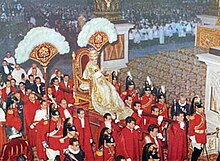
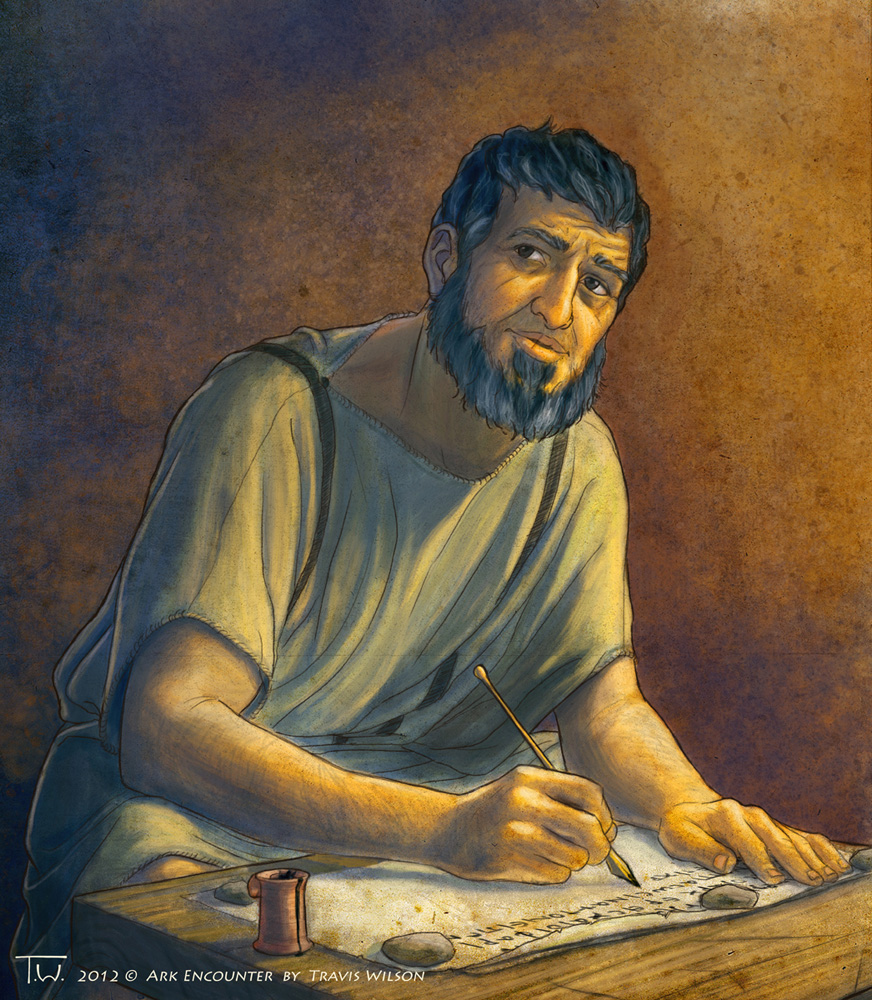


-1-.jpg)

